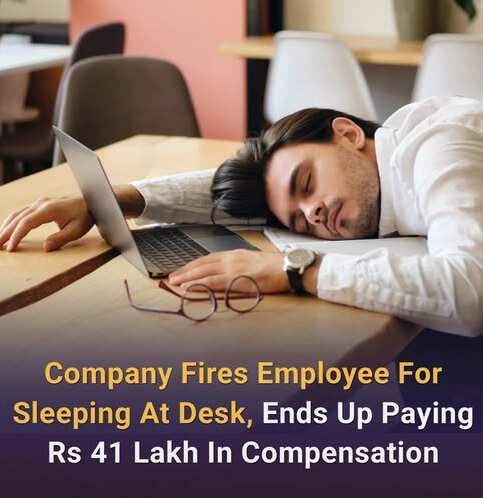Employee Wins Lawsuit After Being Fired for Napping at Desk in Jiangsu, China

In an odd situation from Jiangsu, China, a 20-year chemical business employee was sacked for a snooze at his desk and subsequently found himself in the centre of a court dispute. Just one day after working late till midnight, Zhang, who had worked relentlessly for years, was sacked for resting for an hour. Although the corporation mentioned its "zero-tolerance policy" on sleeping during business hours, Zhang wasn't willing to let things pass. Surprising himself, he chose to contest his dismissal in court.
For numerous reasons, the case has drawn eyebrows. Zhang's company noted in their report that he had probably been tired since working late the evening before. Still, the labour union of the company supported his dismissal for what they thought to be a policy breach. Having a great performance record, Zhang was resolved to rebel and brought the matter before the Taixing People's Court.
The court decided in Zhang's favour, saying the firing was unwarranted. The judge pointed out that Zhang had no past of disciplinary problems and that his slumber was a first-time offence with no effect on the business whatsoever. The court underlined that the sentence should reflect the degree of the infringement and its effects on the company. The court noted that Zhang's slumber had done little damage and ought not to have resulted in such a severe punishment.
Apart from rendering Zhang in favour, the court mandated that the business pay him 350,000 yuan (about ₹40 lakh). This choice has spurred a larger discussion on employee rights, corporate policies, and the need of striking a balance between discipline and flexibility.
For many, especially regarding employee well-being, this case emphasises the importance of companies adopting a more reasonable attitude to workplace policies. Often referred to as "power naps," short breaks can really help companies as well as staff members. Studies find that power naps can increase output, lower stress, and enable employees to keep greater energy levels all through the day. Given this, businesses might wish to review rigorous "no sleeping" rules and concentrate on establishing a workplace that supports staff members' health and welfare.
Although companies have to keep discipline and make sure staff members stay focused, this case reminds us that a little leeway can help to create a good, efficient working culture. Zhang's triumph benefits staff members all around who feel their rights could be disregarded in the haste for efficiency as well as him.
In the end, the court's ruling emphasises a crucial point: staff members are human and companies should consider their needs. Over time, a fair approach to employee health could result in a happier, more productive staff. Companies should reassess how they apply their policies and take into account how helping employee well-being will help everyone.
--
